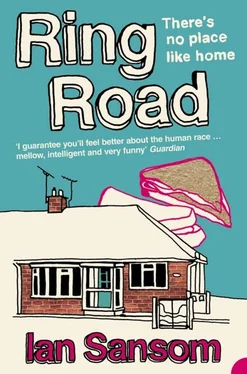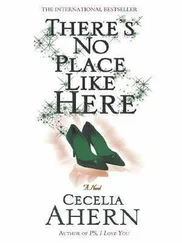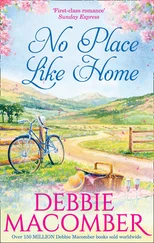Davey is famous in our town because he is the seventh son of a seventh son, which is a rare distinction anywhere but nothing short of a miracle here, where the population has been growing for as long as anyone can remember but where the family size is getting smaller – these days a seventh son seems not so much a hopeless indulgence as a sheer impossibility, or an embarrassment, even among the most devout of the dwindling and ageing congregation at the Church of the Cross and the Passion, where Davey’s parents still attend regularly and still give thanks for the fact of his wonderful birth, long after the event.
Davey, needless to say, does not share his parents’ enthusiasm and never has done. His is a distinction that he did not earn, and did not ask for, and it has proved to be a heavy burden for which he was quite unprepared. It would probably be fair to say that Davey Quinn has found his position in life more difficult to bear than most: his fame has taken its toll. The famous photographs that appeared in the local paper, the Impartial Recorder, can still be found framed in pubs and bars around town, places that like to fill their walls with the faces of local celebrities, as a warning and a witness, perhaps, to the meaninglessness and transitoriness of human life, for who now remembers our champion high-diver, Don Kennedy, who competed at the 1936 Munich Olympics, and who walked around town on his hands every morning and did marathon push-up demonstrations in the old market place (which is now the multi-storey)? Or even Barbara McAlesee, the Impartial Recorder’s ‘Woman of the Week’ as recently as 1979, who knitted scarves and hats from the fur of dead pets, and who appeared on the once popular Sunday night television programme That’s Life, and who exists now only in a faded newspaper cutting behind the counter at Scarpetti’s, alongside an example of her handiwork, a muffler, framed, made from the fur of the late Mrs Scarpetti’s terrier, Massimo? Or the McLaughlin brothers, the tap-dancing twins who danced their way out of town and into Broadway success in the chorus of the musical Hold on to Your Hats in 1943, which starred Al Jolson and Martha Raye singing ‘She Came, She Saw, She Cancanned’?
The most popular and much reproduced photograph of Davey shows him with his eyes sealed shut, wrapped tight in a blanket and stranded in the arms of his suited and black-spectacled father, with his six brothers in duffel coats and parkas crowding around in front, looking utterly fed-up, standing outside the old cottage hospital – formerly the soap-works – on Union Street, which is where all the Quinn brothers were born, two generations of them, and which is long since demolished, which has made way for an extension to what used to be the Technical College and is now the Institute of Higher and Further Education, and which may some day become a university, if the Principal, Hugh Scullion, has his way, which he usually does. *
From this great seat of learning, then, what was once that little cottage hospital, Davey Quinn made not only our local news, but the national news, and the international – within a week of his birth he had straddled the globe as evidence of God’s amusement and of the wonder of fornication. The midwife’s slap – Miss Carroll’s, as it happens, a lovely, jolly woman, who committed suicide a few years ago, the day after her retirement, a terrible tragedy and a loss which was felt by the whole town, many of whom she had brought to life with her own bare hands, with her renowned firm slap – and Davey’s cold cry seemed to carry from earth to heaven, and far across land and sea, as far, they say, as America, where his tiny features could be seen on news-stands from state to state and on the televisions of the nation.
These days parents might grow rich on the proceeds of such an extraordinary birth, but back then we were all innocent and little Davey was not regarded as a commodity – he was, rather, and to all of us, a gift. A commodity can at least be bought and sold – it is a free exchange. But a gift implies obligations: it is therefore difficult to refuse or to return. Poor Davey, the runt of the litter, a little miracle, an excitement in all four corners of the globe, was the fulfilment of a life’s ambition for his father, Davey Senior, as he became known, and he was therefore, naturally, a huge disappointment to him and hence to himself. Babies, if only they knew the dismal realms they were about to enter, would probably never heed the call and never leave those remote gold and silver coasts from whence they come and have their lodgings. They would pause, consider the darkness, and sit right back down again on their fat little hunkers and never cross the waters into memory and oblivion. Surely no being rushes to embrace its own apotheosis? Unless, of course, that being be man.
Some years ago Davey left to travel the world and to try to escape his unique privilege and responsibilities, to try to escape photographs of himself in pubs and bars, to find riches and even, perhaps, he told himself then, believing such to be possible, to find himself. He got as far as London, where no one believed him – they thought he was joking – if he told them he was the seventh son of a seventh son, even if they stayed around long enough to hear him tell, which was not often and certainly never when he or they were sober or during the hours of daylight, and so in the end it ceased to matter. The wonderful and the terrible, his colossal, inescapable self, became first hilarious and then irrelevant, and finally unmentionable. He found refuge in work and in friendships, and in all the usual and time-honoured traditions. He drank the cup to the lees and there was a vast blur, and in the crowd he became successfully, magnificently anonymous. Among the millions of other talebearers, he lost himself and disappeared.
I don’t know the exact circumstances which brought him to the point of return – there are rumours, of course – but he’s back and it’s good to have him back, and what people are saying is this.
He woke up, they say, and urinated bright red, which was a shock, I guess. Urine is usually yellow, wherever you’re from and wherever you’re living; it is one of life’s few constants, sometimes perhaps a little darker, sometimes perhaps a little lighter, but always yellow, even for the likes of little Annie Wallace and her family, and the Buckles, and the Hawkinses, and the Delargys, our town’s Jehovah’s Witnesses, who have long since forsaken the wicked pigmenting tints of tea and coffee and alcohol, and birthdays, yet whose holy and clean-living wee is still distinctly yellow. Davey Quinn’s urine that morning was a red-wine kind of a red, a welcome colour in a fine-cut crystal glass over a nice evening meal in a favourite restaurant, but never good on porcelain first thing in the morning, and so it was that Davey decided that it was time to come home. He’d been away long enough. His kidney was ruptured. They’d read him his last rites in the hospital, apparently, but he was out and about and fighting fit six weeks later – Davey is nothing if not a fighter – and the very next day he booked his ticket home.
He made it back via our so-called International Airport, which, it has to be said, is not noticeably International – there are tray bakes on sale in the gift shop, for example, and more copies of the Impartial Recorder than there are business books in the newsagent – but it has a reciprocal arrangement with a similar airport in the south of France and there’s a flight once a week, to and from, which grants them both their titles.
So Davey made it back safely and in some style, but alas his luggage did not make it. It’s always touch and go flying in here, whether you’ll arrive with what you left with. Most of us in our time have lost something in transit, even if it’s only our nerves or our resolve, usually because of the final descent, which requires a steep bank round and a sudden drop of altitude, when suddenly you see home and your stomach is in your mouth and you realise exactly how tiny it is, how small, your town, and your street, and your little house in your little street, how insignificant in the great scheme of things: it can be a sobering experience for someone just returning from business, or a weekend shopping trip or visiting relatives in a city, full of themselves and the complimentary drinks and the bag of nuts. Cities exist in and of themselves, and require no explanation, they just are. In a city you can kick back and relax, and you need only concern yourself with questions of who you are and what you are, and how you’re going to be more, and bigger, and better: if you’d ever attended the Philosophy for Beginners evening classes with Barry McClean at the Institute you would probably have called these empirical questions of essence and existence. *A city, in other words, makes you a utilitarian. But when you look at our town you just straight away think to yourself: why? A small town can make you metaphysical. †
Читать дальше












